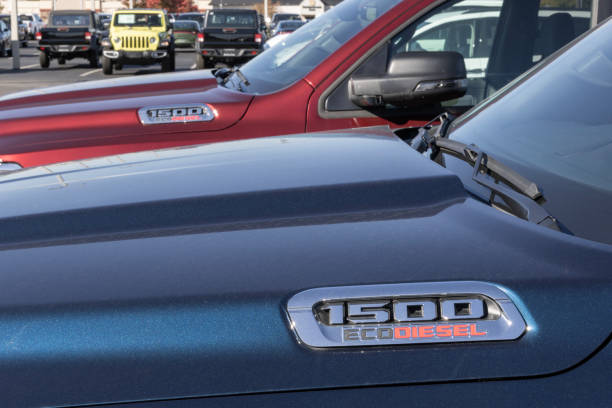
The United Auto Workers leader announced Wednesday, less than 24 hours before the contract’s deadline, that his members are prepared to strike the three Detroit automakers. At first, they will walk out at a small number of factories. If the talks continue to be stalled, then the walkout may expand.
The U.A.W. Shawn Fain also ruled out a possible extension of existing four-year contracts between General Motors and Ford Motors or Stellantis when they expire Thursday night. In a Facebook Live address to union members, he said: “September 14 is not a reference date. It’s a deadline.”
He said that the first strike locations would be “limited and focused” and that they would be announced to members Thursday night, ahead of Friday’s walkout.
This tactic, which is a departure from U.A.W.’s usual strategy to stage a full-scale strike against one automaker as the target, was designed to give U.A.W. more leverage in the negotiations. Negotiators will have more power during the negotiations and keep the manufacturers on edge.
“It’ll keep them guessing as to what will happen next,” said Mr. Fain.
Even a few strikes at automakers would disrupt production while still ensuring that the U.A.W. The three companies continue to pay their members and have them working.
Union organizing and union drives
- Microsoft has announced its neutrality in the event that any U.S. workers unionize.
- Starbucks: Federal labor regulators accused Starbucks of closing illegally 23 stores in order to suppress organizing activities and tried to force the company to reopen the stores.
- Tesla: Weeks after mechanics who worked for Tesla in Sweden in late October walked out of their jobs, other unions in the country, as well as in Scandinavia, have joined in the strike.
- Amazon More than a year after Staten Island workers voted to create the company’s very first union in America, Amazon seems to be taking a more aggressive stance toward labor organizations.
The union will pay $500 per week to striking workers and cover their health insurance costs. The league has an $825 million strike fund, which could cover the payments made to workers during a three-month strike that would include all three companies.
The union’s initial proposal to companies demanded that wages increase by 40 percent over four years. This was based on the assumption that the pay packages for the chief executives of companies have risen on average that much in the past four years. The union also wants regular cost of living adjustments to adjust wages in line with inflation.
The union also wants pensions for every worker, better retiree benefits, shorter working hours, and the end of a wage structure that begins new hires with about half of the U.A.W. The union is also seeking pensions for all workers, improved retiree benefits, shorter work hours, and an end to a tiered wage system that starts new hires at about half the top U.A.W.
According to Mr. Fain, the companies, who are each negotiating with the union separately, have counterproposed raising wages by about half of what the league has asked for, and they have done less to satisfy other demands.
General Motors released a statement after Mr. Fain made his announcement. The report stated: “We are continuing to negotiate directly and in good faith with the U.A.W. We have made additional offers that are strong. “We are making progress on key areas.”
Ford declared that the “future of our industry was at stake” and said it “was ready to reach an agreement.” It added, “We need to work creatively on solving hard problems instead of planning strikes and P.R. events.”
Stellantis announced that it had made its latest offer to the union on Tuesday. The company stated that “our focus is on good faith bargaining to get a tentative deal on the table by tomorrow’s deadline.”
The U.A.W. The U.A.W. The National Labor Relations Board received a complaint from G.M.
Erik Gordon, an auto industry expert at the University of Michigan, believes a strike is very likely. He said that he thought they could reach an agreement over wages, but the other issues were complex and couldn’t be solved in just 36 hours.
The 40-minute speech of Mr. Fain was marked by references to the Bible, memories of his grandfather, who was a unionized autoworker, and plenty of fiery words.
He said at one point, “For 40 years the billionaire class took everything and left everyone else fighting for scraps.” “We aren’t the problem.” “Corporate greed is the issue.”
He showed a slide show listing the demands of the union for wages, benefits, and job security, along with what he called the responses from the companies. He also compared the approach of his leadership team to negotiations with the previous leaders they ousted last summer.
In the past, the U.A.W. The leadership of the union usually gave little information to the members about the current state of negotiations until an agreement was tentatively reached. Mr. Fain stated that union members were “fed-up with the company/union philosophy,” and that all dealings would be open to the union members.
A large-scale industrial action is possible as automakers enjoy near-record profits but are also battling with the transition to electric vehicles. G.M. Ford and Stellantis, the parent company of Chrysler, are investing tens or hundreds of millions of dollars in new technologies, electric models, and new battery plants, as well as retooling older factories.
The union is worried about possible job losses as a result. Electric vehicles, which do not have transmissions or fuel system components, require fewer workers.
The U.A.W. contract does not cover all of the battery plants that these three companies build with their partners. Contract. The U.A.W. has voted to join the G.M. Workers at a G.M. They are currently negotiating their agreement with the company.





